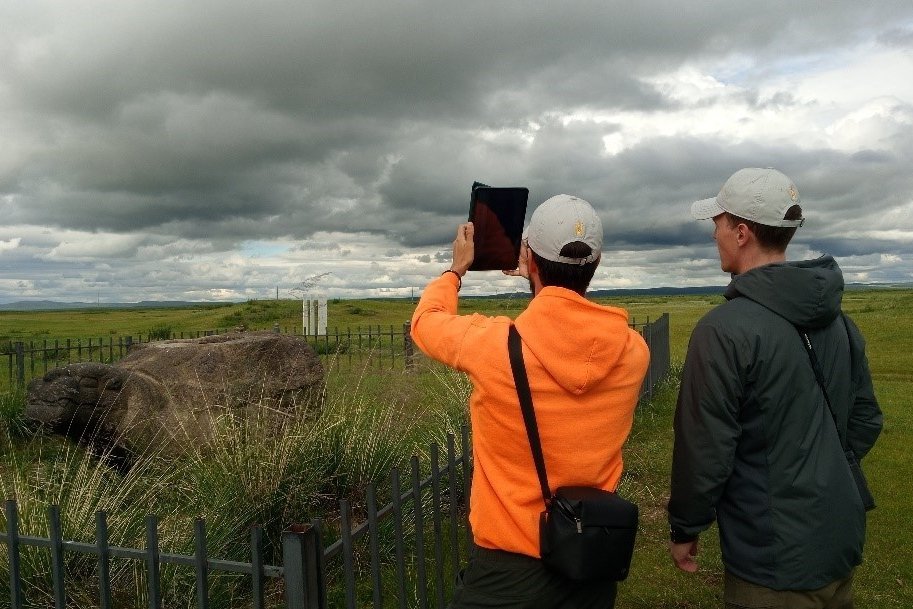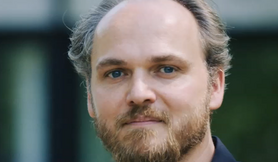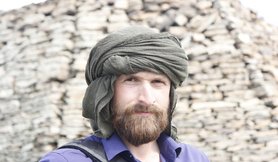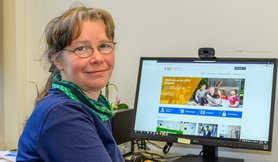![[Translate to English:] Students from the National University of Mongolia and HTW Dresden working with surveying equipment and ground penetrating radar in Mongolia.](/fileadmin/_processed_/9/7/csm_240325_ArchaeoStudiengang_Feldversuch_0a299961a6.jpg)
New international degree programme "Computer and Geoscience in Archaeology"
These days, archaeologists are increasingly using technology to discover traces of the past and make them legible. The HTWD is supporting this development by establishing the international Master's degree programme "Computer and Geoscience in Archaeology". From the coming winter semester, prospective students can enrol on this new, international degree programme at HTW Dresden.
Interdisciplinary training for the use of modern technologies in archaeology
The programme is aimed at graduates of a Bachelor's degree in Archaeology who wish to acquire technological and engineering knowledge and skills. This should enable them to use state-of-the-art technologies for the research and protection of archaeological cultural heritage. "The programme is based on three pillars," explains Dr Marco Block-Berlitz, Professor of Computer Graphics and Dean of Studies for the new programme. The students gain an insight into important fundamentals of computer science and geoinformation, such as mathematics, programming, surveying and remote sensing. The third pillar of the programme is archaeology, in which the skills acquired will be applied.
Dr Hendrik Rohland, Visiting Professor of Archaeoinformatics at the HTWD, notes that the digital transformation is opening up previously unimaginable possibilities for archaeology. Thanks to developments in computer technology, sensor technology and robotics, precise data can now be recorded and analysed to gain insights into the history of mankind. However, it is essential to have specialised knowledge of the history and material remains of a region or epoch. In archaeology, broad methodological expertise is required in order to utilise all the possibilities available to us today in collaboration with other scientific disciplines. Tim Karberg, also a visiting professor of archaeoinformatics at the HTWD, emphasises: Especially in today's turbulent times, the archaeological heritage in many countries is threatened by civil wars and other conflicts. At the same time, this severely restricts the possibilities for working on site. Many digital methods, especially in the field of remote sensing, offer alternatives - not only for scientific research, but also for the monitoring of acutely threatened cultural heritage.
English-language degree programme opens up international perspectives
The programme is aimed at German and foreign students and is therefore offered entirely in English. Compared to other disciplines, archaeology is a small subject in terms of numbers. However, we are one of the few to offer such a programme. With the English-language degree programme, we would like to make an offer to students from all over Europe and beyond.
In recent years and decades, numerous projects on archaeological cultural heritage have been carried out at the university, including the Faculty of Geoinformation, which is also involved in the programme. Dr Martin Oczipka, Professor of Remote Sensing and Digital Image Processing, has gained extensive experience in this field. In archaeology, two questions often take centre stage: when and where? The 'where' in particular is the domain of geoinformation. There is a long tradition of cooperation with archaeological institutions such as the State Office for Archaeology and the German Archaeological Institute. In future, these co-operations are to be further expanded to train the next generation of archaeologists. Summer academies, excursions and exchange programmes offer further opportunities to promote training.
About the master's programme "computer and geoscience in archaeology"
Students receive an introduction to the fundamentals and methods of computer science and their use to process and solve problems in archaeology. The programme also focuses on methods of geoinformation, remote sensing and research data management. In addition, students are familiarised with issues relating to the preparation and medial communication of archaeological-historical contexts to the public. During the course of the programme, students are given the opportunity to take part in projects at the participating institutions and thus gain experience in field and research work.





